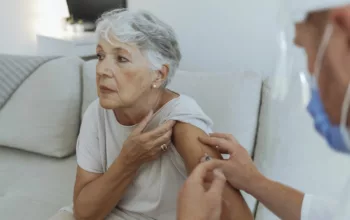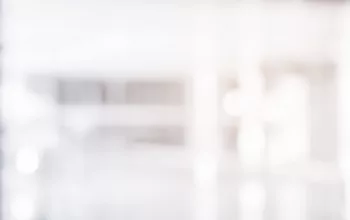Five questions to …. Adebayo Alonge
Author
Share
Adebayo Alonge, pharmacist and entrepreneur, talks to IFPMA about why it is important to bring universal health coverage (UHC) to his native Africa, especially rural areas, how to build up local healthcare systems, foster home-grown hi-tech pharma – and fight quack medicines.
You have been an avid global health advocate with a specific focus on fighting the spread of falsified medicines. Why is this and how can one best defeat the scourge of fake drugs?
I grew up in a small town in Nigeria with my parents and my sister. When I was 14, I suffered a severe asthma attack and my father gave me medicines which he purchased from a local pharmacy on a hospital prescription. I fell into a coma and only woke up after 21 days on life support. And my experience is far from unique. The absence of UHC in rural areas has left the field free for unscrupulous quacks to dispense fake medicines and even carry out minor surgeries in non-sterile wards, using the cheapest of supplies and materials. Rural people often rely on herbs even though they know western medicine is more effective but it’s not on offer due to poor infrastructure and/or too costly.
What are the greatest dangers posed by falsified medicines?
One is the growing prevalence of antimicrobial resistance (AMR). AMR has been described as one of the ten biggest health threats in 2019 by the WHO but few efforts are directed towards understanding the link between falsified medicines and the development of AMR. The problem is further exacerbated by inefficient health education which impacts consumers’ ability to differentiate between professional and quack channels of care. They may be desperate to treat children and friends and the cheapest price drives their purchasing behaviour. Better, more efficient regulatory controls will help eliminate quack channels and ensure secure pipelines link manufacturers and end-users.
You have worked as a volunteer and businessman in improving healthcare in your native Nigeria. What do you think are the best routes to achieving better health for all, universal health coverage, in Africa as a whole?
Extending UHC is vital if we are to reduce out-of-pocket payments that typically and all too often encourage patronage of low-quality, frequently counterfeit medicines, and quack doctors and pharmacists. We need to create professionally run health centres and make these more accessible and affordable: the way to do this is by creating incentives for private healthcare entrepreneurs through reducing regulatory barriers, improving regulation, building up rural infrastructure such as roads and power grids. I would like to see private-sector-run health centres within six miles of each community.
How should one go about financing this healthcare system?
Private and public sectors need to work together. My view is that health subsidies provided by the local government, are required to improve accessibility to quality treatments and medicines and make these affordable. Of course, there might be resistance because rural people are used to having healthcare free, even if it is substandard. What would help is, say, using mobile phones to operate healthcare micro-subscriptions for every rural dweller, with local government meeting the costs. My company uses methods such as cross-subsidies, and service contracts to deliver solutions. This is the best way to strengthen healthcare systems.
What role do digital health solutions play in accelerating UHC? And the role of governments in fostering these and the problems of access and affordability?
Developing Africa’s deep-tech capacities is vital. First, we need a robust IP framework to unleash local R&D competition and enable investment in local research. Second, we should create tax incentives for local investment into commercialising university research – and, fourth, do more to that end to retain our best brains at home rather than see them drain overseas. And we need to start from the earliest age by schooling the youngest pupils in the use of IT and science. I and others are working to create a digital city in Ibadan, Nigeria, and a network of digital skills work centres in municipal schools. Digital health solutions such as the nano-scanners my company makes play an increasingly important role in ensuring quality health care.
Indeed, most substandard and fake medicines are imported so it is crucial to strengthen the local manufacturing of essential pharmaceutical products. Increased in-country production of medicines has many positive benefits and, as in the US and China, African governments need to adopt their own national strategies for supporting innovation. As I said at a recent Paris conference: “Africans cannot be non-aligned. They need to invest in, buy from and enable their own deep tech industries – ones infused with African values.”
Notes: Adebayo has more than eight years’ experience in market development and strategy consulting across Africa, working with BCG, BASF, Roche and Sanofi. In late 2017 he co-founded the start-up RxAll – developing a handheld nano-scanner based on AI technology which enables users to verify the authenticity of medicines and help stop the scourge of fake drugs. So far, RxAll has deployed around 70 devices to the food and drug administration agencies of five African countries as well as 200 pharmacies across Nigeria and Kenya. The company’s goal is to provide every pharmacy with such a device across Africa.
Author





